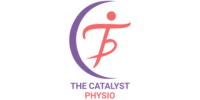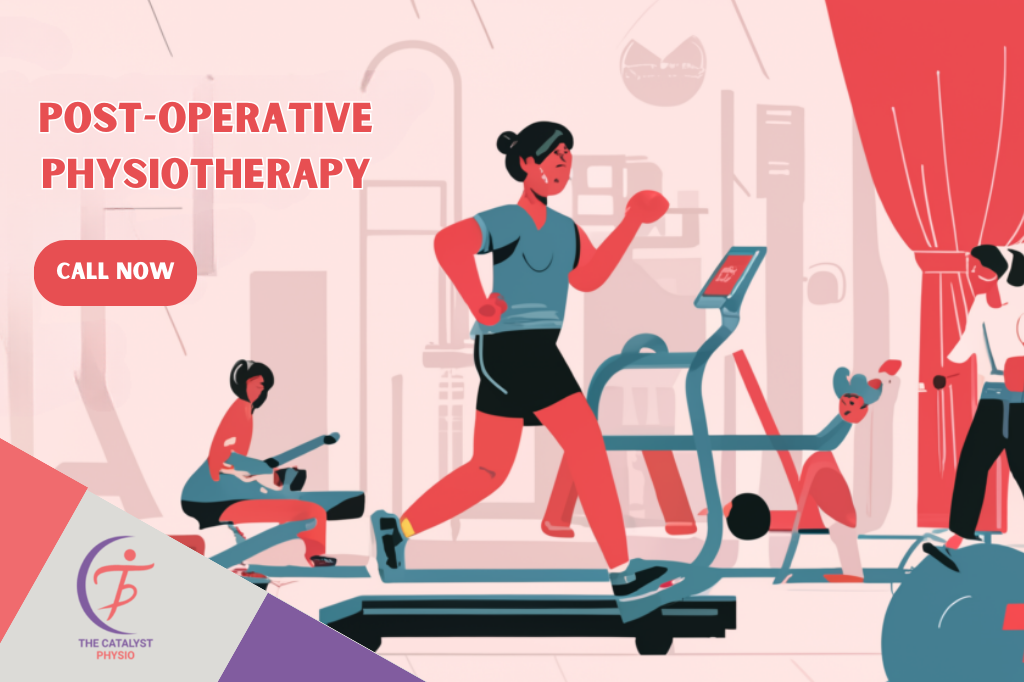Post-operative physiotherapy plays a crucial role in the recovery process for individuals undergoing surgical procedures. From enhancing mobility to reducing pain, its benefits are manifold. This article will delve into the various aspects of post-operative physiotherapy, including its phases, challenges, innovations, and future directions.
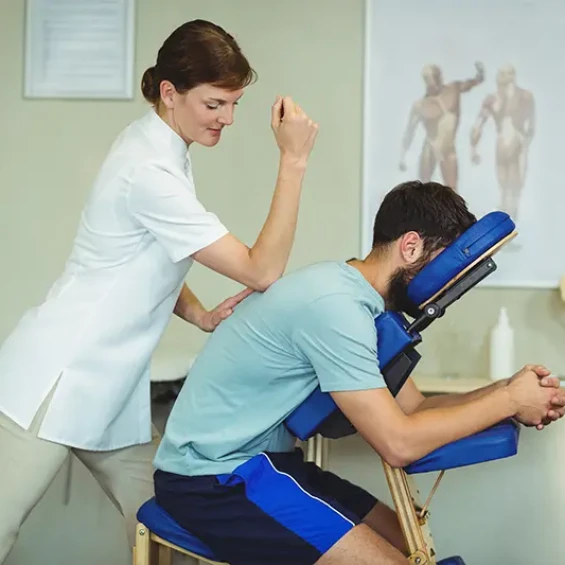
Introduction to Post-Operative Physiotherapy
Post-operative physiotherapy is a specialized branch of rehabilitation aimed at optimizing recovery following surgical interventions. It encompasses a range of interventions designed to restore function, alleviate pain, and prevent complications. The primary goals include promoting healing, improving mobility, and enhancing the overall quality of life for patients.
Definition and Importance
Post-operative physiotherapy involves the application of therapeutic techniques to address impairments and functional limitations resulting from surgery. It is integral to the multidisciplinary approach to patient care and contributes significantly to successful outcomes. By focusing on restoring function and independence, physiotherapy enables individuals to regain their pre-surgery level of activity and functionality.
Goals of Post-Operative Physiotherapy
The overarching goals of post-operative physiotherapy include:
- Facilitating wound healing and tissue repair
- Preventing complications such as stiffness and muscle weakness
- Restoring mobility and range of motion
- Improving strength and endurance
- Enhancing functional abilities for activities of daily living
Preparation for Post-Operative Physiotherapy
Effective preparation before surgery lays the foundation for successful post-operative rehabilitation. This phase involves thorough assessment and education to empower patients to actively participate in their recovery journey.
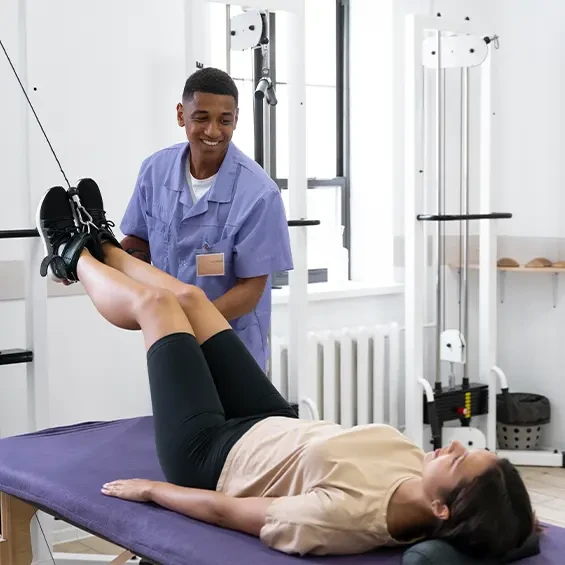
Assessment Before Surgery
Before undergoing surgery, patients undergo comprehensive assessments to evaluate their baseline functional status, mobility, and strength. This information guides the development of personalized rehabilitation plans tailored to individual needs and goals.
Educating the Patient
Educating patients about the importance of post-surgery physiotherapy and what to expect during the recovery process is essential. By providing information on exercises, precautions, and potential challenges, patients are better prepared to adhere to their rehabilitation program and achieve optimal outcomes.
Immediate Post-Operative Phase
The immediate post-operative phase typically begins in the hospital or clinical setting immediately following surgery. During this phase, the focus is on managing pain, reducing swelling, and initiating early mobilization to prevent complications such as blood clots and joint stiffness.
Pain Management
Effective pain management is paramount in the immediate post-operative phase to facilitate early mobilization and rehabilitation. Physiotherapists employ various techniques such as manual therapy, modalities, and therapeutic exercises to alleviate pain and discomfort.

Early Mobilization Techniques
Encouraging early mobilization, including gentle exercises and ambulation, is vital for preventing complications and promoting circulation. Physiotherapists work closely with patients to gradually increase mobility while ensuring safety and comfort.
Intermediate Post-Operative Phase
As patients progress in their recovery journey, they transition to the intermediate postoperative phase, which focuses on restoring strength, flexibility, and functional abilities.
Strengthening Exercises
Strength training plays a key role in rebuilding muscle mass and function post-surgery. Physiotherapists prescribe targeted exercises to strengthen specific muscle groups while gradually increasing intensity and resistance.
Range of Motion Exercises
Regaining full range of motion in the affected joints is crucial for restoring function and preventing contractures. Range of motion exercises, including stretching and joint mobilizations, help improve flexibility and joint mobility.
Advanced Post-Operative Phase
In the advanced post-operative phase, patients progress to more dynamic and functional activities aimed at enhancing performance in daily tasks and recreational pursuits.
Functional Training
Functional training focuses on simulating real-life movements and activities to improve balance, coordination, and proprioception. Physiotherapists design customized programs that replicate tasks relevant to the patient’s goals and lifestyle.
Return to Daily Activities
The ultimate goal of post-operative physiotherapy is to facilitate a safe and successful return to daily activities, including work, sports, and hobbies. Physiotherapists provide guidance and support as patients gradually resume their normal routines, ensuring a smooth transition and minimizing the risk of re-injury.

Special Considerations in Post-Operative Physiotherapy
Post-operative physiotherapy must be tailored to meet the unique needs and challenges associated with specific surgeries and patient populations.
Age-Related Considerations
Older adults may require additional support and modifications to their rehabilitation program due to age-related factors such as decreased muscle mass, slower healing, and comorbidities. Physiotherapists adopt a holistic approach to address these concerns and optimize outcomes in elderly patients.
Specific Surgeries and Their Rehabilitation Protocols
Different surgical procedures necessitate specific rehabilitation protocols to address the unique anatomical and physiological changes associated with each intervention. Physiotherapists collaborate closely with surgeons to develop evidence-based rehabilitation plans tailored to the surgical procedure and individual patient needs.
Role of the Physiotherapist in Post-Operative Care
Physiotherapists play a pivotal role in providing comprehensive post-operative care, from initial assessment to long-term follow-up. Their expertise in musculoskeletal rehabilitation enables them to design individualized treatment plans and support patients throughout their recovery journey.
Individualized Treatment Plans
Each patient presents with unique challenges and goals, requiring a personalized approach to rehabilitation. Physiotherapists conduct thorough assessments and collaborate with patients to develop tailored treatment plans that address their specific needs and preferences.
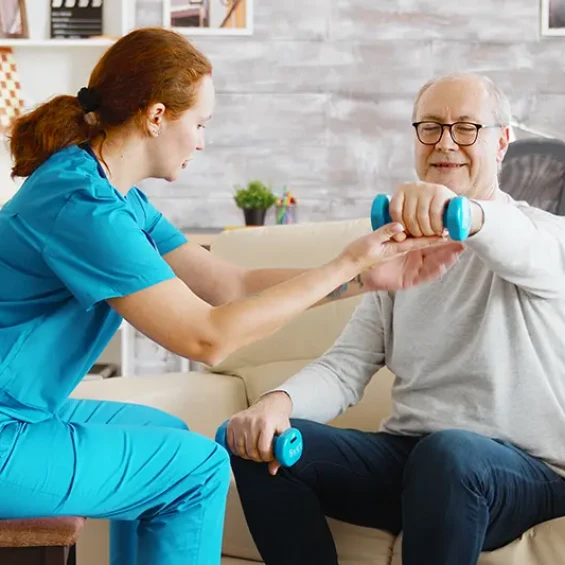
Monitoring Progress and Adjusting Interventions
Continuous monitoring of patient progress allows physiotherapists to track outcomes, identify barriers to recovery, and modify interventions as needed. By closely monitoring functional improvements and adjusting treatment strategies accordingly, physiotherapists optimize outcomes and promote long-term success.
Benefits of Post-Operative Physiotherapy
Post-operative physiotherapy offers a multitude of benefits for patients undergoing surgical procedures, contributing to enhanced recovery and improved quality of life.
Faster Recovery
By promoting early mobilization, strengthening weakened muscles, and facilitating tissue healing, physiotherapy accelerates the recovery process and enables patients to return to their normal activities sooner.
Reduced Risk of Complications
Active engagement in post-surgery physiotherapy helps mitigate the risk of complications such as muscle atrophy, joint stiffness, and functional limitations. Through targeted interventions and patient education, physiotherapists empower individuals to overcome potential obstacles and achieve optimal outcomes.
Challenges and Limitations
Despite its numerous benefits, post-surgery physiotherapy may pose challenges and limitations that impact patient outcomes and adherence to treatment plans.
Patient Compliance
Adherence to prescribed exercise programs and lifestyle modifications can be challenging for some patients, leading to suboptimal outcomes and prolonged recovery times. Physiotherapists play a crucial role in motivating and supporting patients to remain committed to their rehabilitation goals.

Time Constraints
Limited access to physiotherapy services and scheduling constraints may hinder patients’ ability to receive timely and consistent care, potentially delaying recovery and prolonging disability. Efforts to address these barriers, such as telehealth options and extended clinic hours, can enhance accessibility and improve outcomes for patients undergoing post-operative rehabilitation.
Technology and Innovations in Post-Operative Rehabilitation
Advancements in technology have revolutionized the field of post-operative rehabilitation, offering new opportunities for personalized, convenient, and effective care delivery.
Virtual Physiotherapy
Telehealth platforms enable remote consultations and virtual rehabilitation sessions, allowing patients to access physiotherapy services from the comfort of their homes. Virtual physiotherapy offers convenience, flexibility, and cost-effectiveness while ensuring continuity of care and optimizing patient outcomes.
Wearable Technology
Wearable devices such as activity trackers and smart sensors provide real-time feedback on patient movement, activity levels, and adherence to exercise programs. By monitoring progress and promoting self-management, wearable technology enhances patient engagement and facilitates better outcomes in post-operative rehabilitation.
Case Studies and Success Stories
Real-life examples illustrate the transformative impact of post-operative physiotherapy on individuals’ lives, highlighting the importance of early intervention and comprehensive rehabilitation.
Case Study: Total Knee Replacement
Mr. Smith, a 65-year-old retiree, underwent total knee replacement surgery due to severe osteoarthritis. Through a structured rehabilitation program, including strengthening exercises, gait training, and pain management strategies, he regained mobility and independence, allowing him to resume his favorite activities such as gardening and hiking.

Success Story: Rotator Cuff Repair
Ms. Johnson, a 50-year-old avid tennis player, underwent arthroscopic surgery to repair a torn rotator cuff. With the guidance of her physiotherapist and dedication to her exercise regimen, she achieved full range of motion and strength in her shoulder, enabling her to return to competitive tennis without limitations.
Cost-Effectiveness of Post-Operative Physiotherapy
While the upfront costs of post-operative physiotherapy may seem significant, the long-term benefits far outweigh the expenses, both in terms of improved health outcomes and reduced healthcare utilization.
Long-Term Savings
Investing in post-operative physiotherapy can lead to significant cost savings by minimizing the need for additional medical interventions, hospital readmissions, and prolonged rehabilitation. By optimizing recovery and enhancing functional outcomes, physiotherapy contributes to a more efficient healthcare system and better allocation of resources.
Health Benefits Outweighing Expenses
The value of post-operative physiotherapy extends beyond financial considerations, encompassing improved quality of life, enhanced independence, and reduced disability. By addressing the root causes of functional limitations and empowering patients to actively participate in their recovery, physiotherapy delivers long-lasting health benefits that far exceed its initial costs.
Patient Education and Empowerment
Empowering patients with the knowledge and skills to manage their condition and participate in their recovery process is essential for long-term success in post-operative rehabilitation.
Importance of Self-Management Techniques
Educating patients about self-management techniques such as home exercises, activity modification, and pain management strategies empowers them to take control of their recovery and maintain their gains over time. By fostering independence and self-efficacy, physiotherapists equip patients with the tools they need to navigate life after surgery successfully.
Lifestyle Modifications for Better Recovery
Incorporating healthy lifestyle habits, including regular exercise, proper nutrition, and stress management, can enhance the effectiveness of post-operative rehabilitation and promote overall well-being. Physiotherapists collaborate with patients to develop personalized wellness plans that address their unique needs and goals, setting the stage for long-term success and vitality.
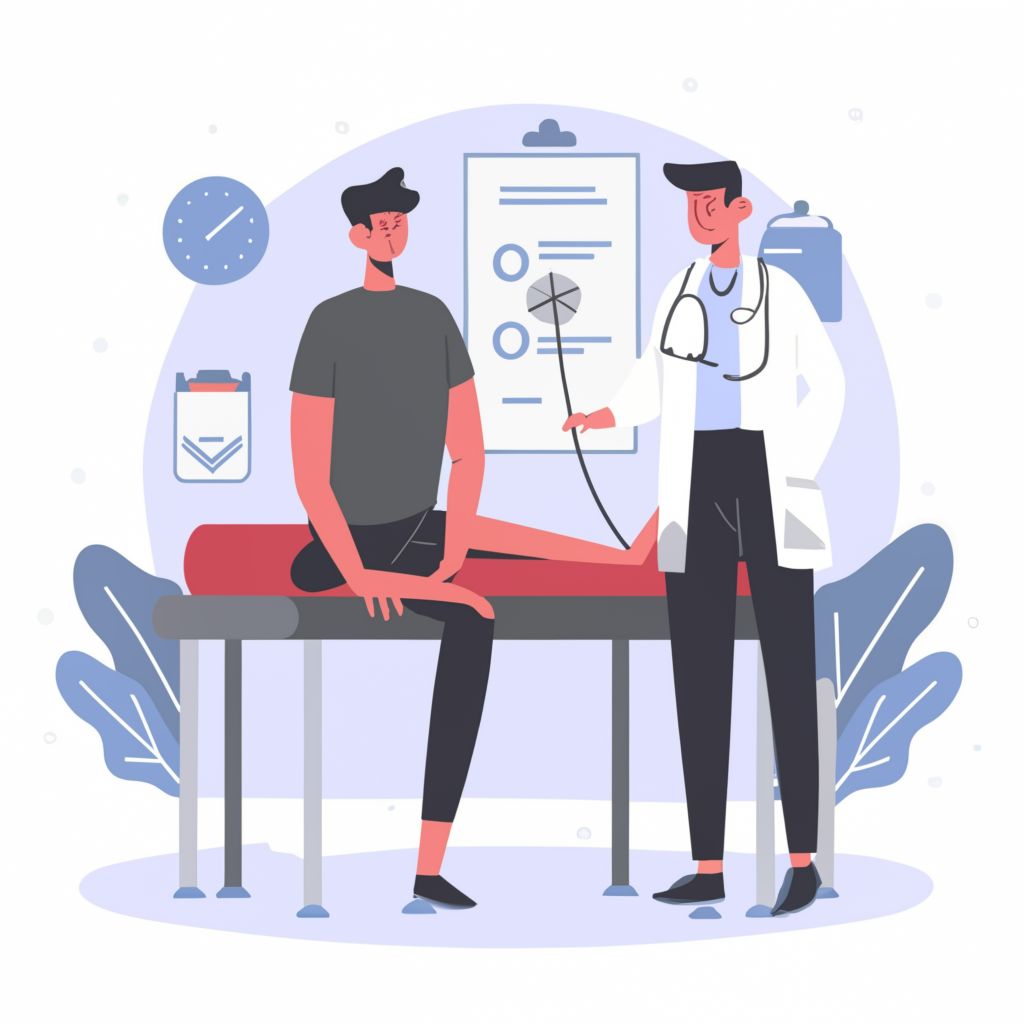
Future Directions in Post-Operative Rehabilitation
The future of post-operative rehabilitation holds promise for continued advancements in treatment modalities, care delivery models, and interdisciplinary collaboration.
Advances in Treatment Modalities
Emerging therapies such as regenerative medicine, virtual reality, and robotic-assisted rehabilitation offer new avenues for improving outcomes in post-operative care. By harnessing the latest scientific discoveries and technological innovations, physiotherapists can optimize recovery and maximize functional outcomes for patients undergoing surgical interventions.
Integration of Holistic Approaches
Recognizing the interconnectedness of physical, mental, and emotional well-being, future approaches to post-operative rehabilitation will embrace holistic principles that address the whole person. From mindfulness-based interventions to integrative therapies such as yoga and acupuncture, physiotherapists will explore innovative strategies to optimize recovery and promote holistic health for patients.
Conclusion
In conclusion, post-operative physiotherapy plays a vital role in optimizing recovery and enhancing the quality of life for individuals undergoing surgical procedures. From the immediate post-operative phase to long-term rehabilitation, physiotherapists employ a range of interventions to facilitate healing, restore function, and empower patients to achieve their goals. By addressing the unique needs and challenges of each patient, physiotherapy enables individuals to overcome obstacles, regain independence, and embrace life to the fullest.

Unique FAQs
- Is post-operative physiotherapy painful?
- Post-operative physiotherapy aims to minimize pain and discomfort through gentle exercises, manual therapy, and other modalities. While some discomfort may be experienced initially, the overall goal is to improve mobility and function without exacerbating pain.
- How soon after surgery should I start physiotherapy?
- The timing of post-operative physiotherapy varies depending on the type of surgery and individual patient factors. In most cases, physiotherapy begins shortly after surgery, often while the patient is still in the hospital or clinical setting.
- Can I do physiotherapy exercises at home?
- Yes, many post-operative physiotherapy exercises can be performed at home with guidance from a physiotherapist. It’s essential to follow the prescribed program carefully and communicate any concerns or difficulties with your healthcare provider.
- What if I have mobility restrictions or other health issues?
- Physiotherapists are trained to work with patients with a wide range of mobility restrictions and health conditions. They will tailor the rehabilitation program to accommodate your individual needs and ensure safe and effective treatment.
- How long will it take to fully recover from surgery with physiotherapy?
- The duration of recovery varies depending on factors such as the type of surgery, the patient’s overall health, and adherence to the rehabilitation program. While some patients may recover relatively quickly, others may require more time and ongoing support to achieve optimal outcomes.
Dr. Priyanka Bharadwaj (Physiotherapist)
CB Home Physiotherapist: Dr Priyanka Bharadwaj is one of the best female physical therapy experts in Khanpur, Delhi. She offers Physiotherapy at home in Khanpur and nearby areas. With a well-established practice for home physiotherapy, she is an expert in the treatment of conditions such as Back Pain, Neck Pain, Knee Pain, Sciatica, Cervical Spondylosis, Disc Bulge, Frozen Shoulder, Arthritis, Osteoporosis, Muscle Weakness, Balancing Problems… Post-surgery rehab for Shoulder, Knee Surgery / TKR, Hip Replacement … and neurological issues like Stroke, Nerve Injuries, Bell palsy, Multiple Sclerosis, and Parkinson’s. Dr. Priyanka Bharadwaj has an overall experience of 2 Years in various hospitals & clinics.
Her main focus/expertise is in the field of General Physiotherapy but she has trained & worked across multiple specialties like General Physiotherapy, Pediatric Physiotherapy, Geriatric Physiotherapy, Vestibular Rehabilitation, Neurological Physiotherapy, Musculoskeletal Physiotherapy, Cardiovascular Physiotherapy, Pulmonary Physiotherapy, Sports Physiotherapy, Pre and Post Surgery, Rehabilitation, Dry Needling. She has experience working with a wide range of patients from children of small age to senior patients. Dr. Priyanka Bharadwaj is very compassionate and dedicated to patient well-being.
Qualification
Bachelor Of Physiotherapy
Manav Rachna International Institute of Research and Studies
Overall Experience in Years – 2
Connect with Us Online
Social Media:
Stay updated on our services, health tips, and community events by following us on Facebook. Connect with us, and join the conversation on how home care physiotherapy can contribute to a healthier lifestyle.
Online Form:
You can also fill out our online contact form on our website at The Catalyst Physio. Provide us with your details and inquiries, and we will get back to you promptly.
Your Health, Our Priority
At The Catalyst Physio, we prioritize your well-being. Whether you’re recovering from surgery, managing a chronic condition, or seeking preventive care, our dedicated team is committed to providing you with personalized, convenient, and transformative home care physiotherapy.
Contact us today, and let’s embark on the journey to optimal health together. Your well-being is our priority, and we look forward to being part of your path to recovery and sustained wellness.
